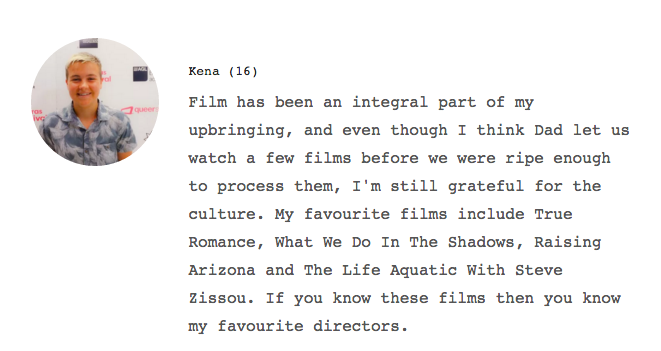I found this film to be one of the most confronting documentaries in my entire film-watching life.
Angry Inuk is a documentary starring, made and narrated by Inuit woman Alethea Arnaquq-Baril. Her story is a sad but hopeful, inspiring and educating one. Alethea documents her personal and community’s struggle to retain its natural and traditional way of life – that is, full-use seal hunting to feed families and whole communities as well as make clothing and artistic products from the skin and remains of the seals they kill. The Inuit people in this film live in the Canadian Arctic Baffin Island, and their entire community’s economy is reliant on seal hunting.
Alethea documents the struggles this economy has encountered after powerful animal rights organisations worldwide have attacked her cultural way of life, and passed legislation against white baby seal hunting. These organisations have run huge campaigns that damaged the reputation of seal skins and furs so severely that the Inuk seal hunters suffered their own Great Depression when the ban was placed in the 1980s, putting many Inuit into poverty. The documentary also showcases Alethea’s difficulty in getting a response from prominent anti-seal-hunting figures in today’s global scene.
Back to the beginning, I found Angry Inuk very confronting. In the first sequence, we see a natural scene of seal hunting, with the most explicit visuals being a dead seal dragged up into a boat and then skinned back on the ice… but having never been exposed to content that raw and real, coupled with my love for animals really jarred me, and I almost turned away. I continued, and I’m very glad I did. Initially I was shocked, angry, disgusted, and was completely on Alethea’s opposition, but the further I watched, the more I learnt.
I learnt; that the Inuk economy is almost entirely reliant on seal hunting; Inuit have almost no other options for work in the region of the world they live; Inuit seal hunting is as humane as killing gets; it’s their traditional way of life, and they don’t waste a single scrap from the seal’s body; organisations incorrectly marketed and labelled the Arctic seal populations as endangered when they are not an endangered species (arguably to directly target and hinder the Inuit market); a profit was made from the “Save the Seal” campaign; and images were immorally used of white baby seals you’ll all recognise to attack the Inuit seal hunters, despite white seal hunting having been banned for decades… and much worse.
Even if you won’t get around to seeing Angry Inuk during the festival, I still encourage you to read the above list of facts and information I learnt through watching this amazing film.
Angry Inuk completed changed my attitudes towards seal hunting, and it took a good hour or so before I was swayed, but I came around. I am a vegan (for perspective), so for me to say my mind was changed about seal hunting, that’s pretty impressive. I am still morally against killing or harming animals anywhere in the world, but the Inuk have no other means of survival, they are traditional hunters, and they savour every last piece of the life they take, so it is justified, in my eyes. Alethea raised some even more important issues with the way organisations have been targeting the seal hunting communities – Animal-rights organisations could have better spent their money on more important campaigns for the protection of actual endangered species, combating climate change, or doing something about underwater seismic explosion tests that deafen marine life and lead to the deaths of countless whales, seals and fish each year?
Alethea’s documentary opened my eyes on a topic I thought I was rock solid against, therefore I highly recommend you see her amazing film to experience the same drastic mental turnaround I did.
Angry Inuk screens at the Sydney Film Festival.
*Some scenes may be distressing for young viewers.

